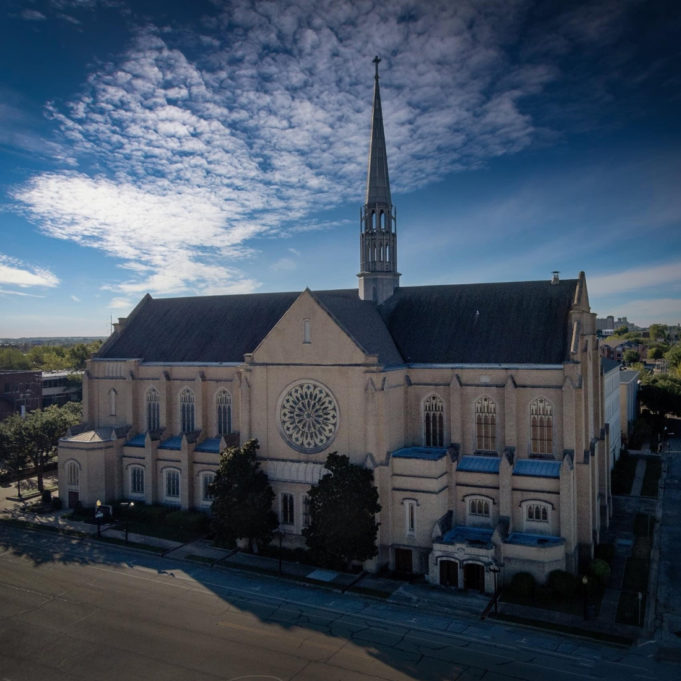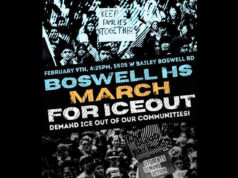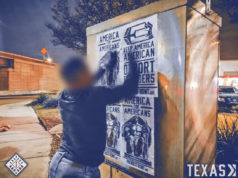We’re all heartbroken over the horrific flooding and deaths in Central Texas on July 4. As the magnitude of the loss of life slowly became clear last Friday, I kept thinking of the agonized words that radio reporter Herbert Morrison uttered as he witnessed the Hindenburg disaster in 1937: “Oh, the humanity.”
And as news of the deaths of the 20-plus girls at Camp Mystic made its way out of Kerrville, a sad and sick feeling set into my stomach. Suddenly and inexplicably, I thought also of the somber and solemn lines of “Away in a Manger”:
“Be near me, Lord Jesus / I ask thee to stay / Close by me forever and love me, I pray / Bless all the dear children in thy tender care / And take us to heaven to live with thee there.”
It was such a sad day for so many. My heart truly goes out to all.
When disaster strikes, words fail even us preachers. What can be said in the face of such suffering? Yet we are supposed to speak something into the face of the dark abyss.
Sadly, too often what is said is not good. People are told that their suffering is God’s will, or God’s plan, and that they are not to question.
But I shall never forget what my boyhood pastor and Broadway predecessor, John Claypool, said helped him most after his young daughter Laura Lue died of Leukemia in 1970. It was a letter from pastor Carlyle Marney written to John and Laura Lue’s mother, Lue Ann. It said succinctly, “Dearest Lue Ann and John, I have no word for the suffering of the innocent. I never have had. I fall back on the notion that God has a lot to give an account for.”
John said that letter gave him permission to name, question, and grieve the “absurdity” and “ambiguity” of belief in a benevolent God in the face of the loss of such a beloved child.
I forget not either the words of pastor William Sloane Coffin, who, in the wake of the loss of his son in a car accident, preached a well-known sermon titled “Alex’s Death” in which he said, “For some reason, nothing so infuriates me as the incapacity of seemingly intelligent people to get it through their heads that God doesn’t go around this world with his finger on triggers, his fist around knives, his hands on steering wheels. … The one thing that should never be said when someone dies is, ‘It is the will of God.’ Never do we know enough to say that. My own consolation lies in knowing that it was not the will of God that Alex die, that when the waves closed over the sinking car, God’s heart was the first of all our hearts to break.”
That is some consolation to me also, and it has seemed a consolation for others with whom I’ve shared the sentiment and conviction in times of their own sorrow and anguish.
Last Wednesday before the flood, I had coffee with Broadway member and friend Dr. Dan Stiver, who is my spiritual director and president of Fletcher Seminary in San Antonio, where he teaches a class called Providence, Evil, and Suffering. In our discussion, Dan happened to describe tragedy as the event of something “being worse than it could have been.”
By all accounts, what we witnessed last week in the Hill Country was tragic. The loss of innocent human and animal life was tragic. The destruction of property was tragic. Now, the politicization of the event is tragic.
Surely, we are learning that the event was worse than it could have been. A confluence of things — a lack of a sound warning system, cabins erected in a flood plain, meteorological institutions short-staffed because of government cuts, exacerbating weather patterns, and a storm that struck in the middle of the night — all came together to cause much more loss of life than would have been the case under different circumstances.
As someone who has his spent his whole life going and taking children and youth to camp, I know how much care and concern for safety is considered while still trying to create an exciting and unique experience in nature. I dare not, therefore, join the fracas making uninformed judgments and casting premature blame from afar.
At the same time, accountability is necessary as we must learn from what has happened, lest tragedy strike again and things be worse than they could or should be once more.
Certainly, as increasing climate change impacts the size and potential destructive force of various storms, we must not take the same approach with weather events that has been taken with school shootings, refusing to acknowledge the root of the problem and offering “thoughts and prayers” rather than real, protective solutions through responsible public policy.
We are the ones responsible. And we must act responsibly.
In addition to the gutsy pastoral words Carlyle Marney wrote John Claypool on the occasion of Lara Lue’s death, Marney elsewhere cut to the prophetic bone when he said he would no longer pray for God to do anything that he knew was actually his or ours to do instead.
We are responsible. We must act responsibly. And we must demand that our public officials act responsibly also.
Jesus was once asked about the suffering of a group of pious worshipers from Galilee who were killed by Pontius Pilate right as they were making their offerings in the sanctuary.
“Do you think that these Galileans were worse sinners than all the other Galileans because they suffered this way?” Jesus asked. “No, I tell you! But unless you change how you are thinking, you too will all perish.”
Jesus’ point was that sacrifices were not going to protect anyone from the machinations of a madman. Good, God-loving people were being killed. And nothing was going to change through prayer or worship. What was needed was some kind of deeper change on earth, not in heaven.
Thoughts and prayers will not save us or our children from calamity, callousness, or cruelty. For it is not the will of God that any innocent people should die! And it is not from God that innocent people need to be protected!
Insurance policies used to, and sometimes still do, call storms, floods, and other calamitous events “acts of God.” No! God’s heart is always the first to break!
And it must break God’s heart to have us think of God in this way!
God is tender. God is caring. God is careful. God is responsible.
God calls us also to be responsible — with our words and also with our actions.
We pray for so many who’ve lost so much. Oh, the humanity! It breaks our hearts. It breaks God’s also.
God’s heart breaks. Our hearts break. We do what we can to put the broken pieces back, together.
Rev. Ryon Price is the senior pastor of Broadway Baptist Church on the Near Southside.
This column reflects the opinions and fact-gathering of the author(s) and only the author(s) and not the Fort Worth Weekly. To submit a column, please email Editor Anthony Mariani at Anthony@FWWeekly.com. He will gently edit it for clarity and concision.












